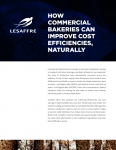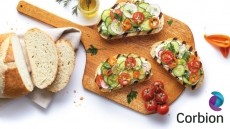Malyasian palm oil producers await nod from Kraft
demand after US food giant Kraft confirmed that it had plans to use
more palm oil in processed foods for the US market.
According to a report in the New Straits Times, a Kraft official had confirmed said that the company was planning to increase use of the oil in an effort to reduce the levels of saturated and hydrogenated fats in its food products - two types of fats that are known to carry potential health risks caused by transfatty acid.
Kraft vice-president for international corporate affairs, Richard Johnson, told the newspaper that its plans were in line with the company's plans to meet stricter US health and labeling standards which are to be enforced by 2006 with the aim of reducing transfatty acid in processed foods.
The new US regulations stipulate that US food manufacturers will have to list all transfatty acid content on their food labels. With the pressure growing on processed food makers to reduce these transfatty acids, food manufacturers are increasingly moving away from saturated and hydrogenated oils which are known to be high in transfatty acids. On the other hand, scientists have proved that palm oil is a safer and healthier solution to many other edible oil alternatives.
Additionally, palm oil producers also claim that it is cheaper than other alternatives such as soy oil. Currently Malaysian palm oil prices trade at about 25 per cent less than the cost of soy oils on world markets.
The fact that both price and health issues are driving demand for Malaysian palm oil was evinced earlier this month when leading producer Golden Hope announced record results. It announced six monthly profits up from RM 118 to RM180, saying that the figures had been driven by increasing international demand from food processors as well as a rise in the commodity's price.
Like many of the major producers, Kraft has been using increasing amounts of palm oil in its US confectionery products, however Johnson says that the company now intends to broaden the scope for the oil by introducing it to a range of other low transfatty acid food products.
Earlier this week Kraft announced a major launch of foods aimed at the growing health, wellness and convenience sector during the Food Market Institute Supermarket Industry Convention, held in Chicago. The series of launches revolved around low calorie and low fat foods with high nutritional content.
Launches included its LowCarb line and a series of portion-control 100 Calorie Packs from Nabisco that Kraft claim to have zero grams of trans fat and are cholesterol free.
Kraft markets some of the worlds leading processed food brands and is present in more than 150 countries. Any major increase in its requirements for palm oil is expected to be met in Asia. Malaysia is the clear world leader in palm oil production, currently producing over 50 per cent of worldwide production, while Indonesia produces around 35 per cent.
According to Malaysian palm oil industry sources, other food giants, including Nestle and Unilever, are also looking to increase their use of palm oils in processed foods.












